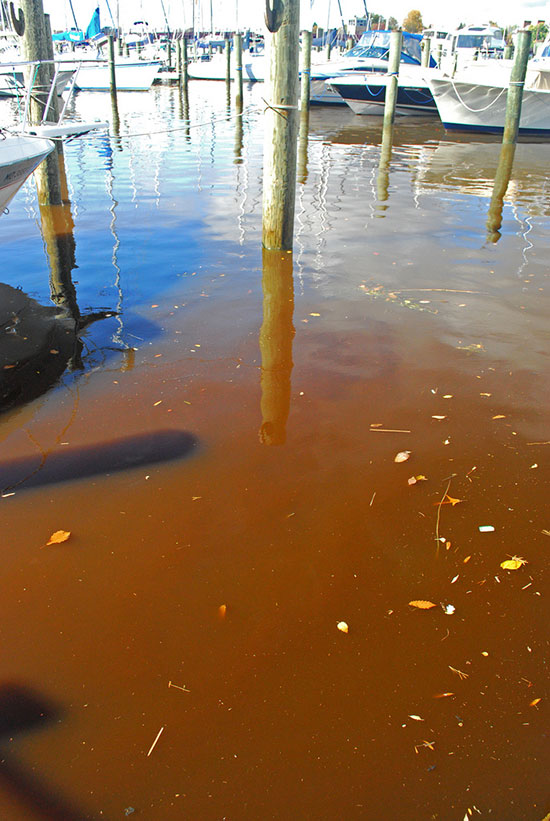Pollution trends reflect lag time between restoration efforts, water quality improvement
A USGS report tracks nutrients and sediment in nine tributaries.
Nutrient and sediment trends at nine Chesapeake Bay monitoring sites have shown an overall lack of improvement, according to a report released this week by the U.S. Geological Survey (USGS).
As part of the Chesapeake Bay Program’s integrated approach to assess water quality as the Bay “pollution diet” is implemented, the report tracks changes in nitrogen, phosphorous and sediment trends at monitoring stations on the Susquehanna, Potomac and James rivers, as well as six additional waterways in Maryland and Virginia.

Using data from 1985 to 2010, the USGS measured minimal changes in total nitrogen at six out of nine monitoring stations and minimal or worsening changes in phosphorous at seven out of nine monitoring stations. Using data from 2001 to 2010, the USGS measured minimal or worsening changes in sediment at eight out of nine monitoring stations.
But a lack of improvement in pollution trends doesn’t mean that pollution-reduction practices aren’t working.
While nutrient and sediment trends can be influenced by a number of factors—among them, wastewater treatment plant upgrades and changes in land use—there is often a lag time between when restoration work is done and when visible improvements in water quality can be seen. And while the nine stations monitored here are located downstream of almost 80 percent of the land that drains into the Bay, runoff and effluent from three of the watershed’s biggest cities—Baltimore, Richmond, Va., and Washington, D.C.—do not flow past them, meaning that pollution-reduction practices implemented in these areas—or put in place after 2010—are not reflected in the study’s results.
According to the report, the USGS plans to work with partners to help explain the trends and changes described in this report; initial focus will be paid to the Eastern Shore and Potomac River Basin.
Read more about nutrient and sediment loads and trends in the Bay watershed.

Comments
There are no comments.
Thank you!
Your comment has been received. Before it can be published, the comment will be reviewed by our team to ensure it adheres with our rules of engagement.
Back to recent stories